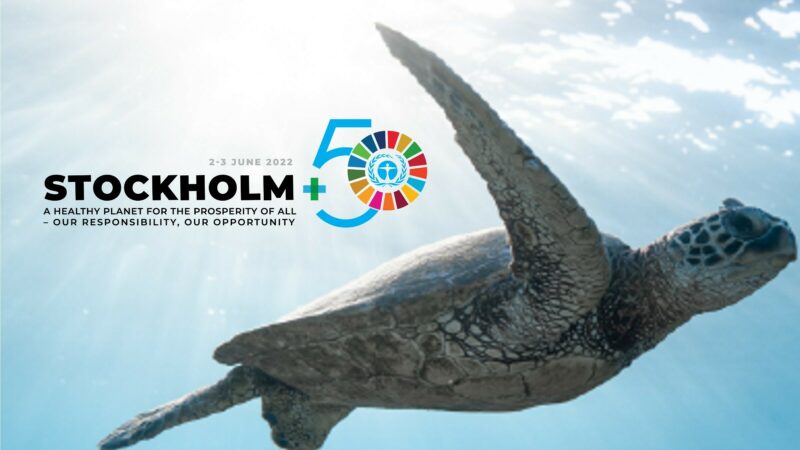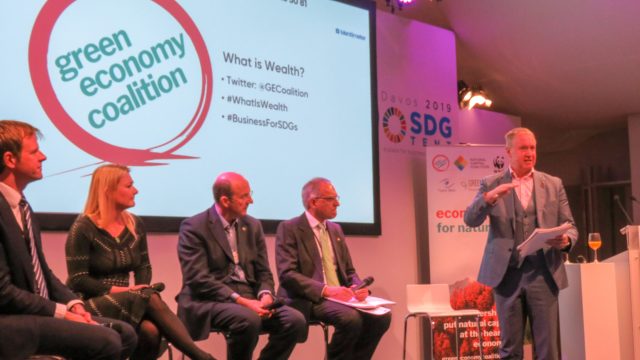Stockholm+50: tragedy, paradox, and magic sauce
Reflecting on fifty years of governmental failure - and looking to the secret ingredients that will empower a successful transition

This week I was at Stockholm +50, so called because it is fifty years since sustainable development was officially created by the United Nations in Stockholm. We: a King, Prime Ministers, ministers, John Kerry, 3000 delegates, and a healthy youth contingent (but not Sweden’s own Greta, and, even more disappointingly, relatively few attendees from the Global South, thanks to vaccine inequality) were there to discuss how far have we come and what next.
My take from the Stockholm +50 front line? It is failure writ large, a trade-off tragedy, an unsolvable paradox – but, if you knew where to look, a clue towards success.
At this global summit there was no escaping the black cloud of the “global triple environmental crisis” (the UN framing) – of climate, biodiversity and pollution. The indicators have got worse, much worse. The great acceleration of human development has pushed the planet into a dangerous Anthropocene.
“ Since 1972, only 10% of all the environmental treaties negotiated in these endless sustainable development conferences have seen effective implementation.”
And despite much well-meaning rhetoric and a beautiful opening ceremony that preached solidarity, the killer stat of the conference came from our friends the Stockholm Environment Institute. Since 1972, only 10% of all the environmental treaties negotiated in these endless sustainable development conferences have seen effective implementation. 10% - governments give yourself 1 out of 10!
At Stockholm +50, we could have started there. We could have tried to answer the question - why? And what are we going to do differently – because we don’t have another 50 years.
Stuck in a harmful system
Here is one answer to that question. The economic paradigms that our governments cling to recognise that the environment is important – but not as important as economic growth. And so when it comes to a choice, governments will always trade environment for development. Across the last 50 years, leaders have promised development progress, and for almost every nation, that has had an environmental cost – a cost which is now coming back to bite us. We continue to choose economic models and pathways that harm people and nature.
There was little recognition of this in the conference halls of Stockholm. Instead, “circular economy” was everywhere – the misguided idea that capitalism will be fine, actually, if we all just recycle a bit more. Circular economy cannot be the magic bullet that lets us pretend everything is fine. An insightful senior Swedish official reminded us of the Jevons paradox, which shows that additional efficiency has always led to increased demand, not reduced supply. In short, circular will never be enough.

The part answer to this – an economy that embraces the green economy principles of sufficiency and efficiency, that addresses the consumption and production systems driving the crises, and prioritises wellbeing over material stuff – is a debate that did not happen.
I was there for GEC to engage in the debate about COVID recovery and getting serious about transition, launching our report “Setting a structural agenda for a green economic recovery from COVID-19”. In the paper we analyse the existing recovery and transition literature and summarise the collective policy advice into a top 10. We make the point to governments, don’t waste cash stimulating with one hand while taking away with the other (perverse policy), instead both spend stimulus on green and deliver on green policy to accelerate the transition.
Breaking the deadlock
In one side event I went to, the question was asked "what is the magic sauce that will guarantee transition success?" I suggest the opening ceremony had come closest to the answer – Solidarity and Youth.
Solidarity partly means the importance of multilateralism, the United Nations, but we have moved on from 1972. Solidarity no longer only means nations; in a connected world it also means people. There is a reason Sweden consistently tops the green transition polls, because it also tops the democracy indexes. We need green economic democracy, environmental democracy: everyone must have a stake, prosperity for all must be a real promise and not just an empty slogan. To deliver a shared global green deal will require serious public engagement. In 2022, solidarity for the transition means ‘United People’ behind, inside, demanding, and leading the transition – a new social contract.
Already some shape is emerging on how to do that. This new social contract must explicitly address the most impacted communities (coal miners, truck drivers) with support and understanding, it must engage the most economically excluded communities (women, people of colour, indigenous, youth, migrant and refugee communities, small businesses) to ensure a diverse and inclusive transition, and it must build a critical mass of people pushing for positive change.
“ Transition is about economic democracy. Without addressing the economics of who has what, democracy will fail, and with it our future.”
But there is something else, even more magical brewing in the conference fringes. At a side event for young climate activists, I met Diego, a young Swede who is putting together a legal challenge to his government for not doing enough. So social contract can either be proactive process of citizen engagement, or it can be fought in the courts.
GEC decided in its recent coalition strategy refresh that we shall invest in social contract, in more processes of deliberative democracy and also invest in social movements – including youth engagement, and support them, shoulder to shoulder, even if it means we end up in court. Because transition is about economic democracy. Without addressing the economics of who has what and how do we share our resources, democracy will fail, and with it our future.
If you want to read the Stockholm+50 outputs... They are not bad, but I repeat the conference killer stat - since 1972 only 10% of government environmental treaties have been effectively implemented. Hot air. It’s killing us.
We need a social contract for a shared global green deal. We need people united for a just transition. We need participative democracy and we need legal disincentives. Let’s get serious.
- Oliver Greenfield, GEC


